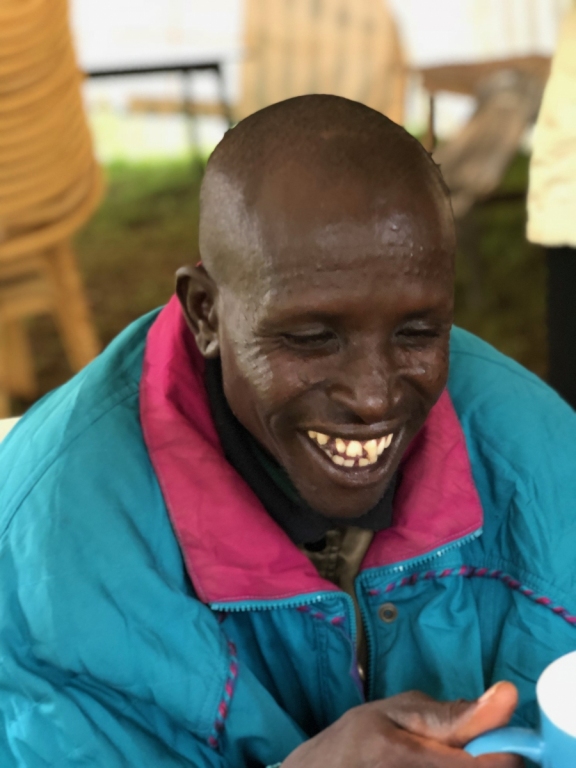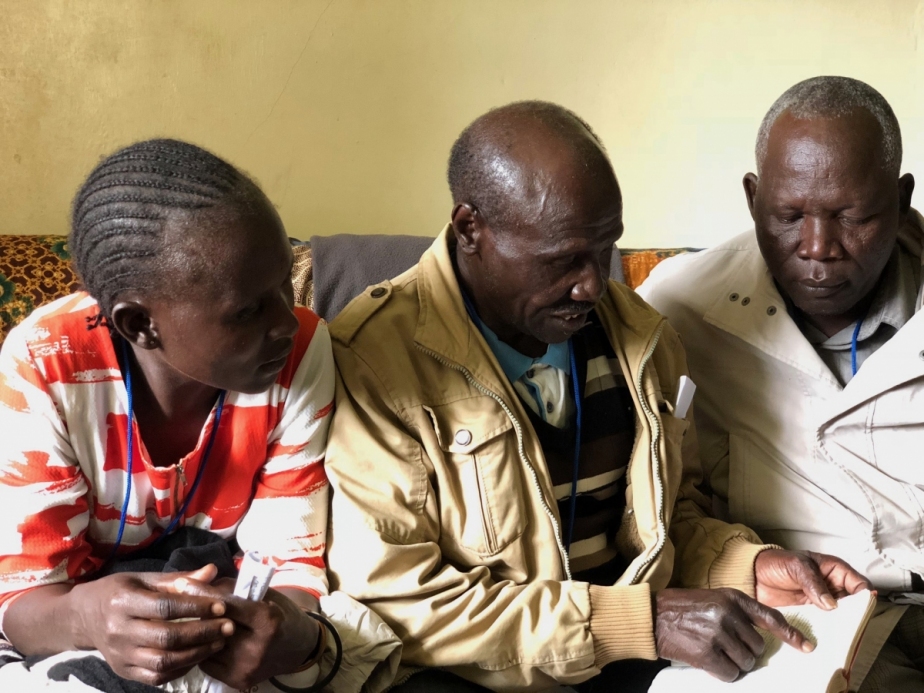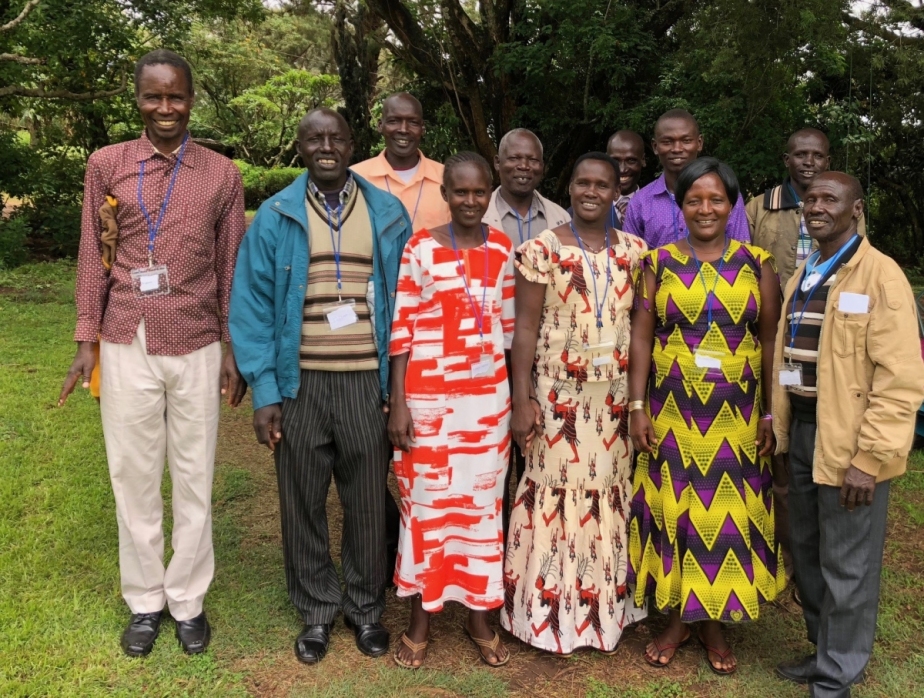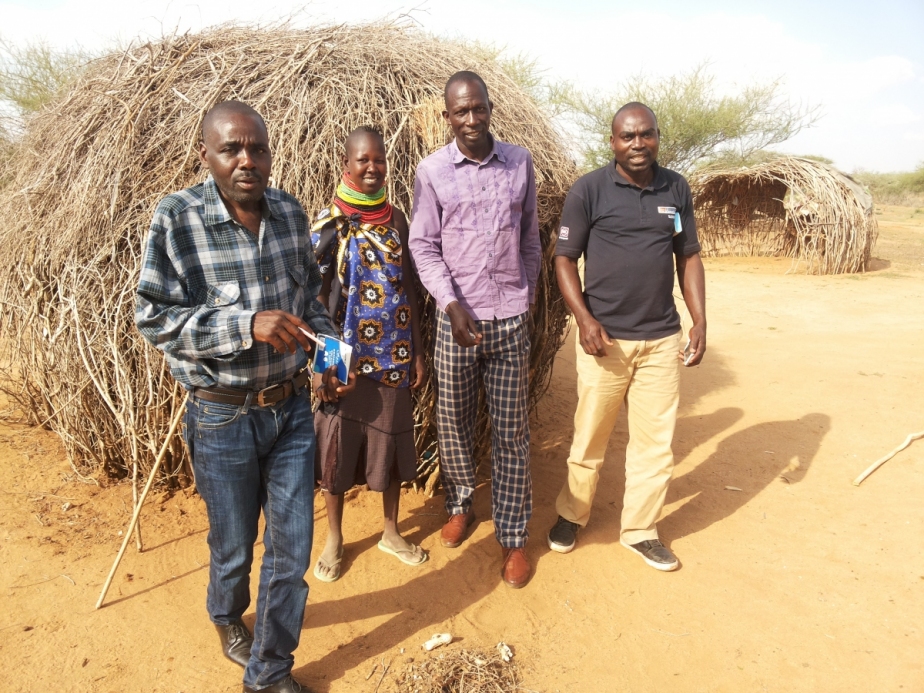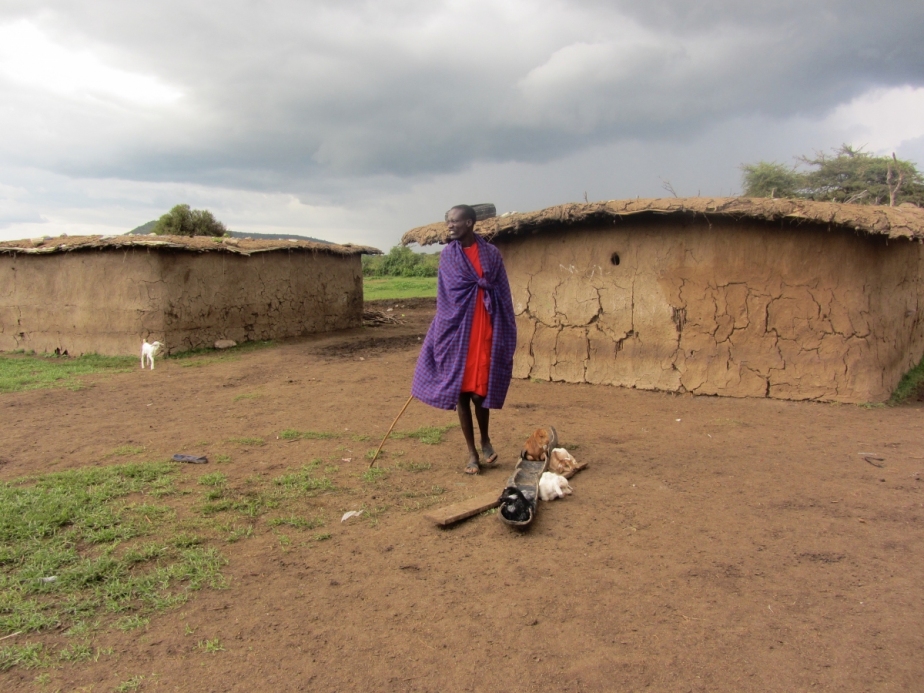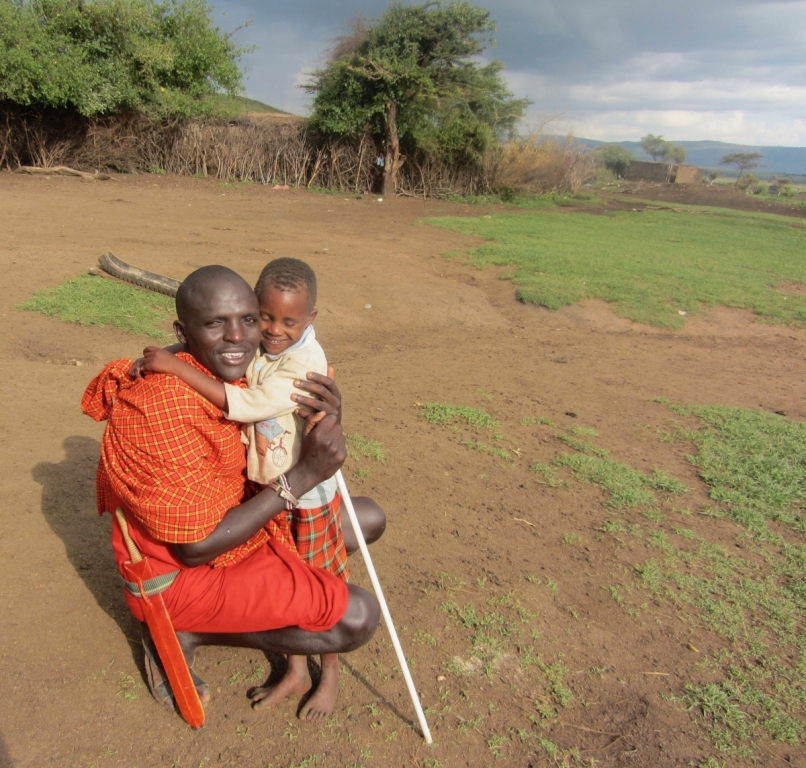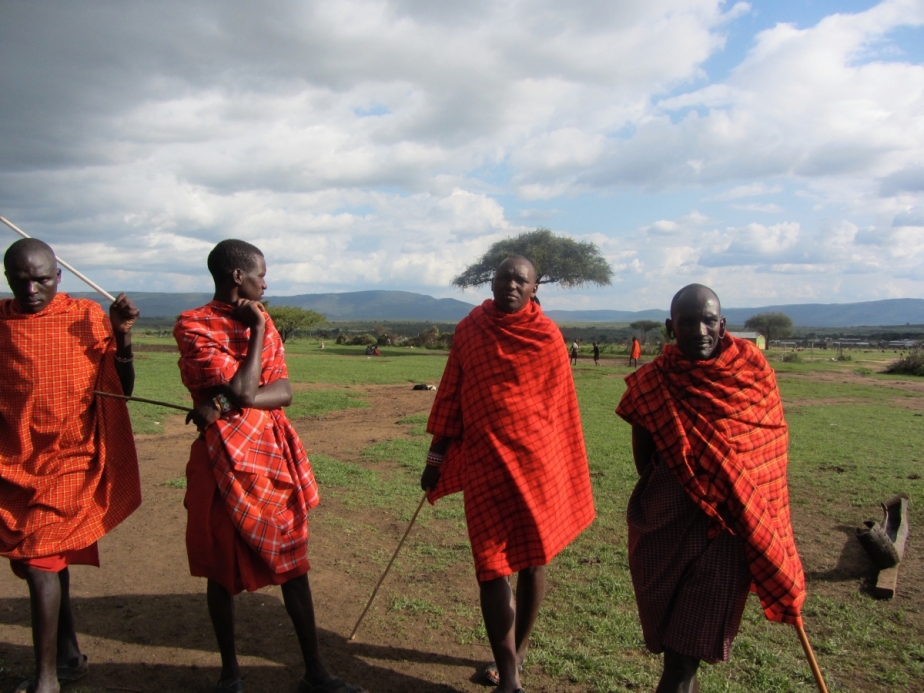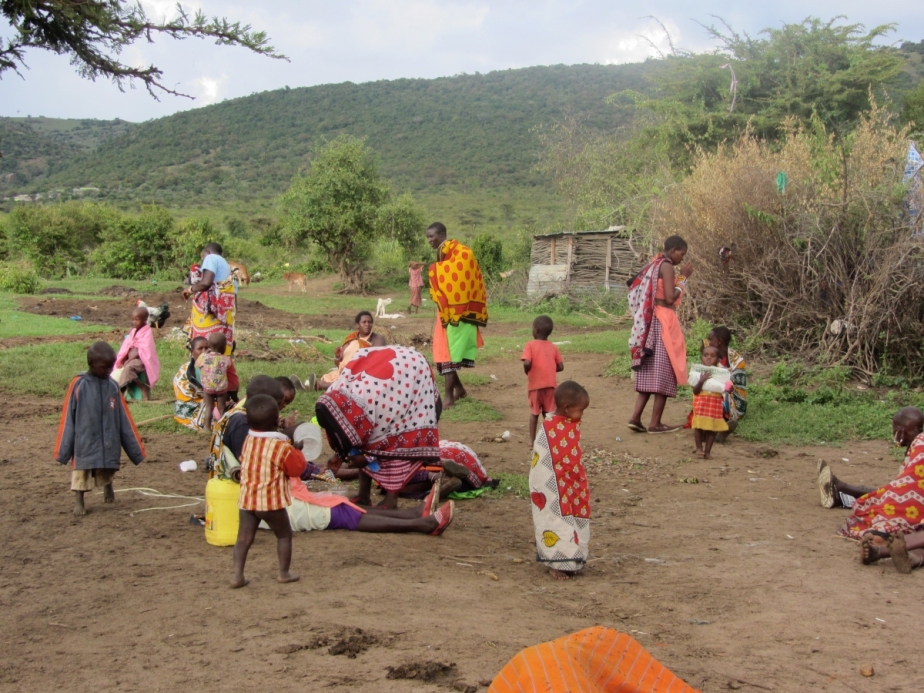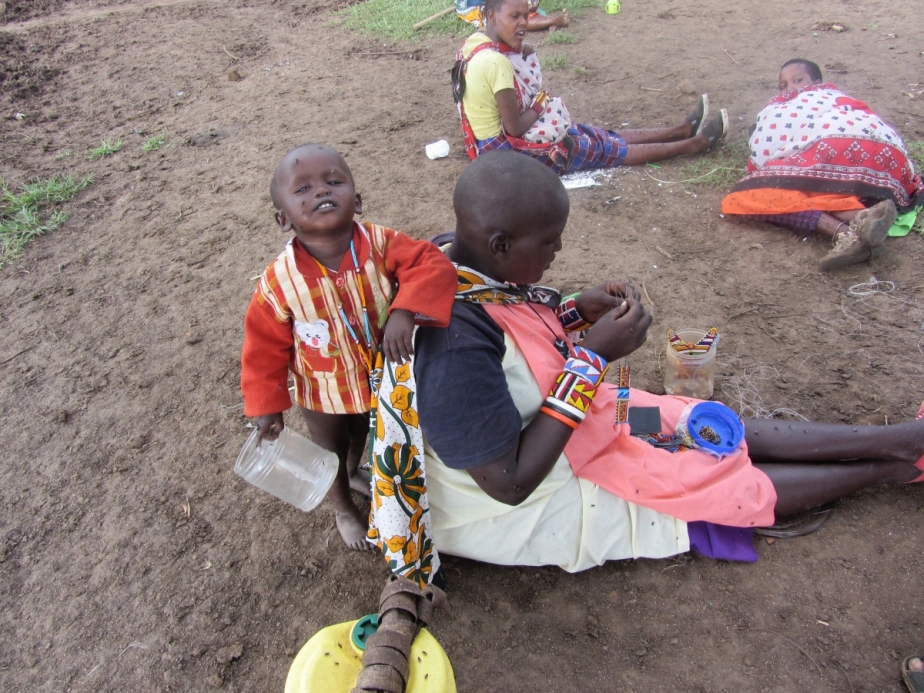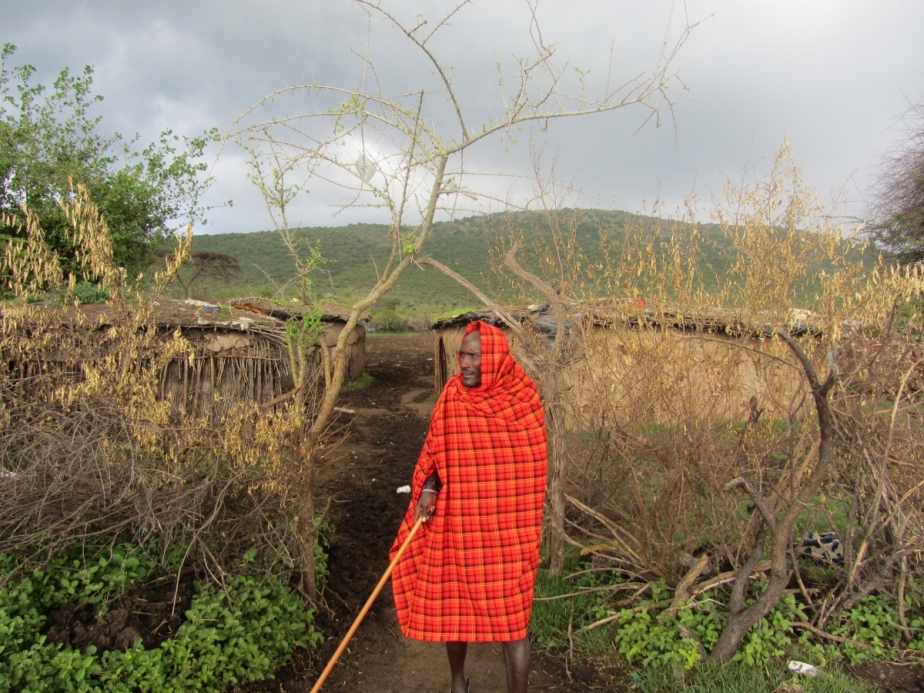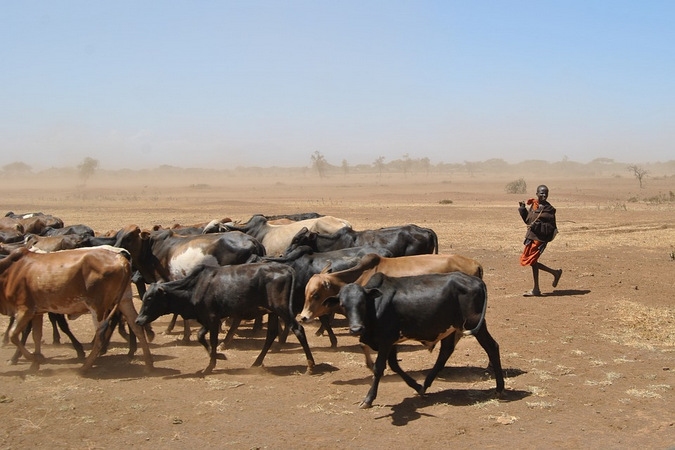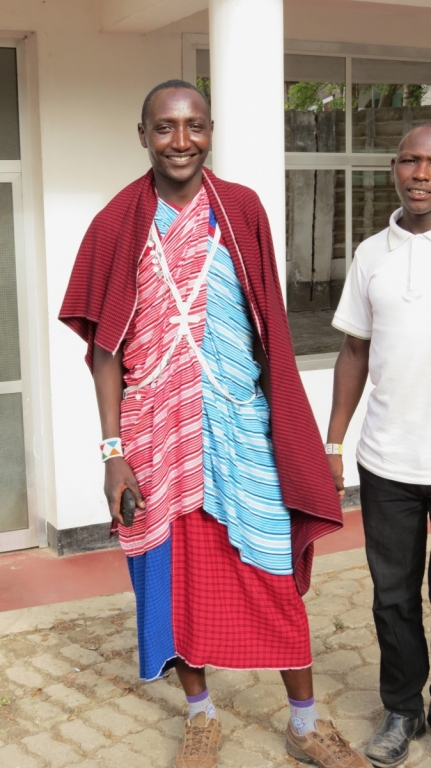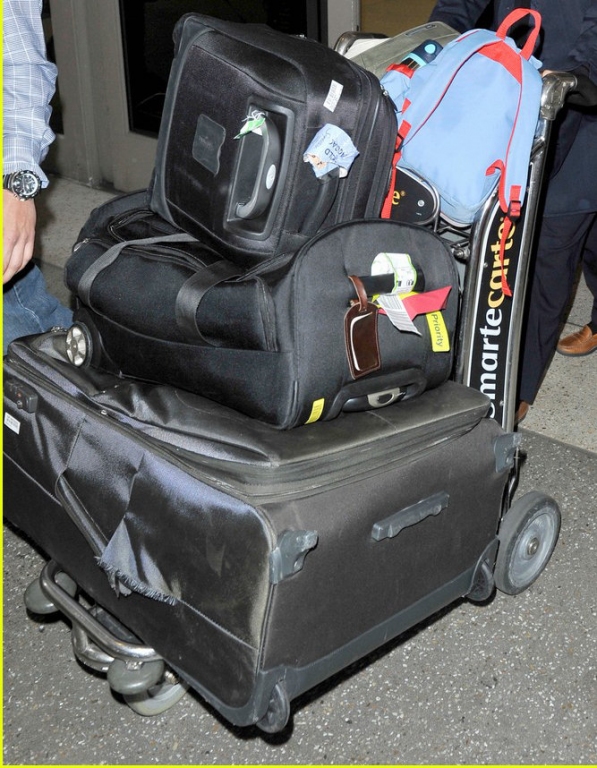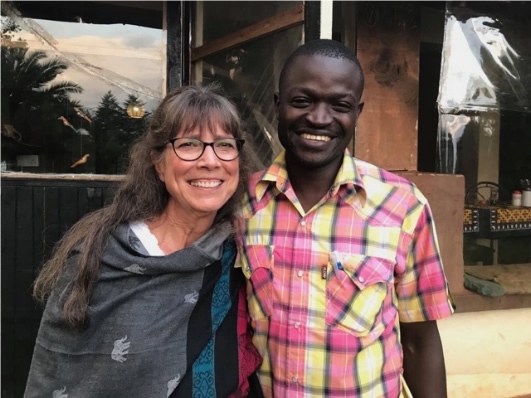— Turkana Is Not Kenya
 Brooks
Brooks
Being with people is so different than just hearing about people. The Kenya team has been intentionally going into the northwestern region of Kenya known as Turkana to make disciples. Just getting there is not easy. The roads are extremely poor requiring 4-wheel drive and because thievery and cattle rustling is a way of life, encountering gunfire is common. The team has made about four trips up there so far. One of the new disciples, William, a Turkana leader, and leaders from several house churches traveled last week down to Transnzoia County, to spend time with us. Even though we’d seen photos and had conversations and reports from the team, we seriously did not begin to understand what it’s like until we got to sit with these amazing people.
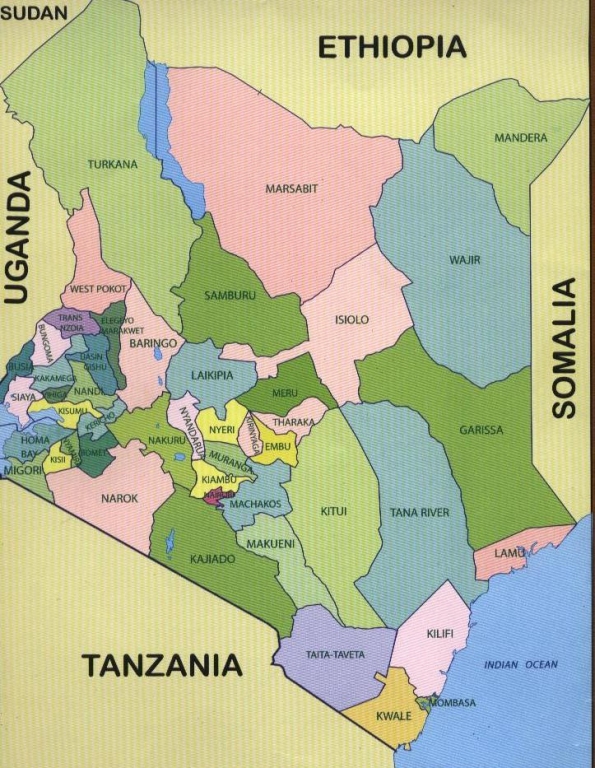
For example, we never knew Turkanans do not consider themselves to be part of the nation of Kenya. They live much more as a people group, with many sub-tribes, an entire nation unto themselves, not as a very large county included as part of Kenya. Their culture is so entirely different and their living conditions are far, far worse than, from what I’ve seen, the worst-off Kenyan experiences. The climate alone is tough. In the dry season, they somehow survive the extreme heat and dried up riverbeds. Then, when it’s rainy season, although grateful for the rains, the long-awaited torrents also bring life-threatening flooding that demolishes their mud, thatched homes, and meager belongings. To emphasize the hardships of their existence, they told me, “We have a saying, ‘In Kenya they take sugar and milk with their chai; in Turkana we have no milk.’” One of the Kenyans (by our standards who himself lives an impoverished life) agreed saying, “You can’t imagine how it is. In dry season they have one small bottle of water and this is for an entire family for drinking.”
We learned so much being with these people. Each encounter packed with insights into a life beyond anything I could imagine. Here’s just a couple of excerpts:
Initially, William, who we’ve met three times before, greeted us, “I’ve seen you in Kenya, but now we pray you will come and work in Turkana. You will come and receive a Turkana name and then you will always remember you are from there. If you come when there is hot sun or if you come in the rainy season or whatever the situation is, your name will come and when you go back home your kids will be amazed with your long, long name.”
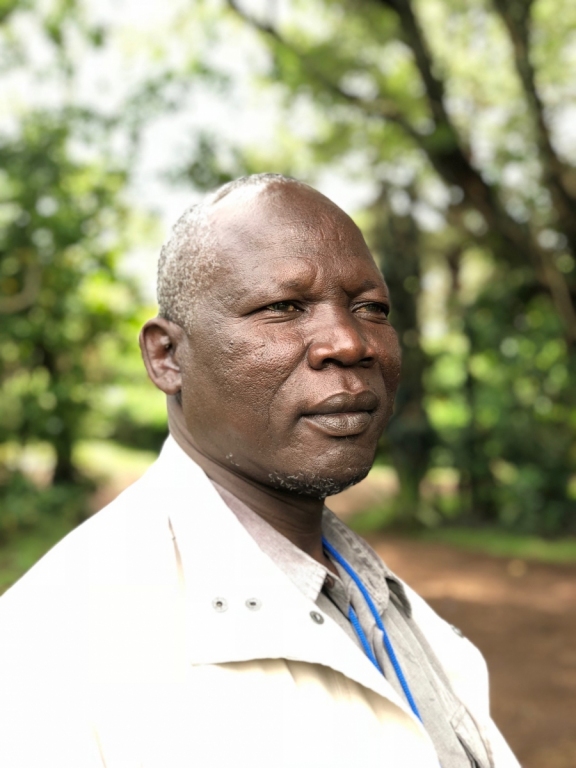
“When the Kenya visitors first came, they almost cried it was so dry, dry, dry and hot. There was nothing but hunger here. There were so little food and so many people. They brought food but it was very hard to distribute because of so many people. We gave each one a small cup of food. We beg you to come so together we can solve the issues there. We believe if all of us come together we can solve the problems in Turkana. We need water in dry season and houses during the rainy season. They are like animals the way they live. When the rains come, everything is destroyed, even when the sun is there, we cannot hide. The rain destroys our homes. We become very old because of so many problems.”
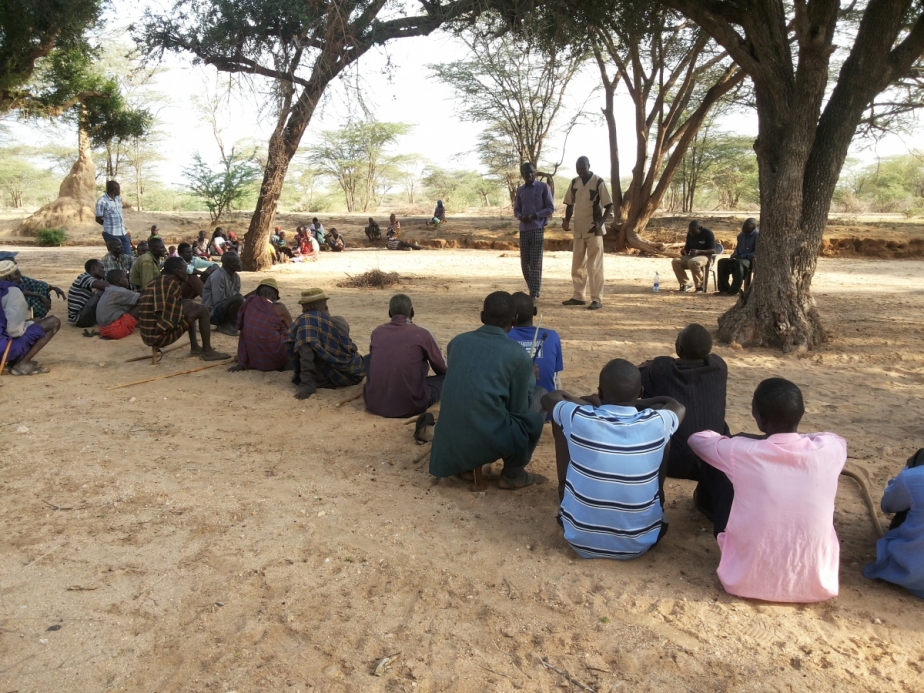
Discovering another culture is exciting, enlightening and sometimes confusing. For example, the Kenyan team kept referring to “traditional” referring to the Turkanans’ clothing or housing or beliefs.
Traditional, I learned, means things like the long-standing hatred between the Pokots who live in the bordering county and the Turkanans. Tradition says, “Steal from your neighbor. Use guns to do it.” Cattle rustling is a daily occurrence. Cattle = wealth. This is their reality…almost daily. One of the guys in sharing his testimony, said, “All the Pokots are bad but now I see they have the same blood as me. For example, in 2014 I took my last exam for secondary school. During the exam, the Pokots came and shot so many people in our class.”
Traditional includes things like strong beliefs in appeasing their god and ancestors, begging for rain, obeying the directives of the diviners or prophets, living a nomadic lifestyle forever in quest of water and food for livestock, and homes built with a wooden frame covered with sticks, skins, and palm fronds.
Sitting with the women for some time I learned a lot. In 1985 (and everyone knows the date), some of the people started to put on some skins for clothing (before they were naked except for necklaces or bracelets or headdresses of beads). After that, some would put on a piece of fabric for a skirt. Today the men wear a lesso (a rectangular piece of fabric) on the top and maybe some shorts on the bottom. For women, they wear jangles (beads) around the top hanging from the neck and maybe a lesso for a bra around the chest. They wear either a short lesso or long one for a skirt. I was told, “Today we are wearing Kenyan clothes which were very expensive to buy, but we are in Kenya today and must wear clothes so no one notices us.”
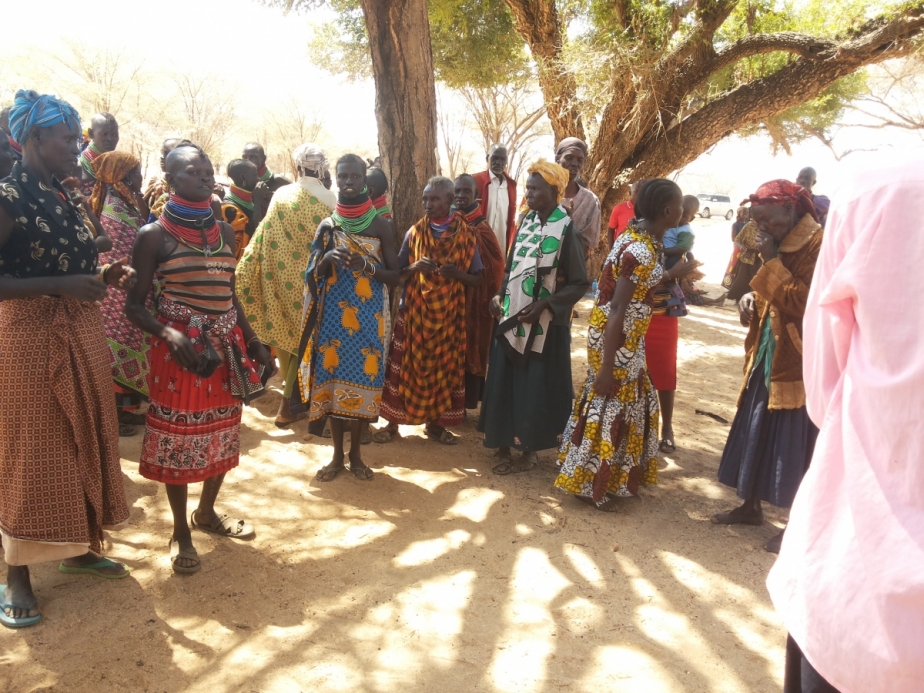
Traditional for the Pokot women means when a woman is about to be married she goes to the home of the husband and sits on an animal skin. The women in the family then give the new bride bracelets as a gift signifying the amount of the dowry given. When you see a woman with these bracelets you can tell she is a married woman.
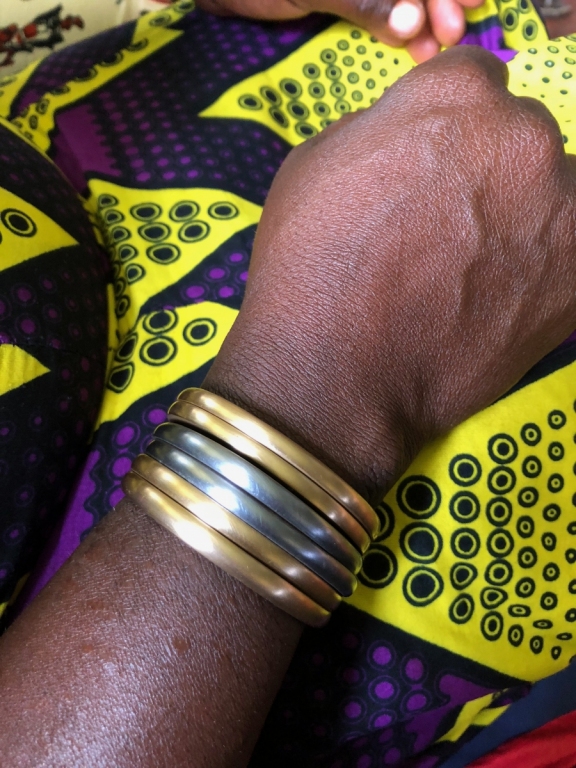
Traditional for the women in Turkana means the women wear many brightly colored beaded necklaces signifying different things. A plain metal necklace (the silver necklace in the center) included in her necklaces signifies she is a married woman.
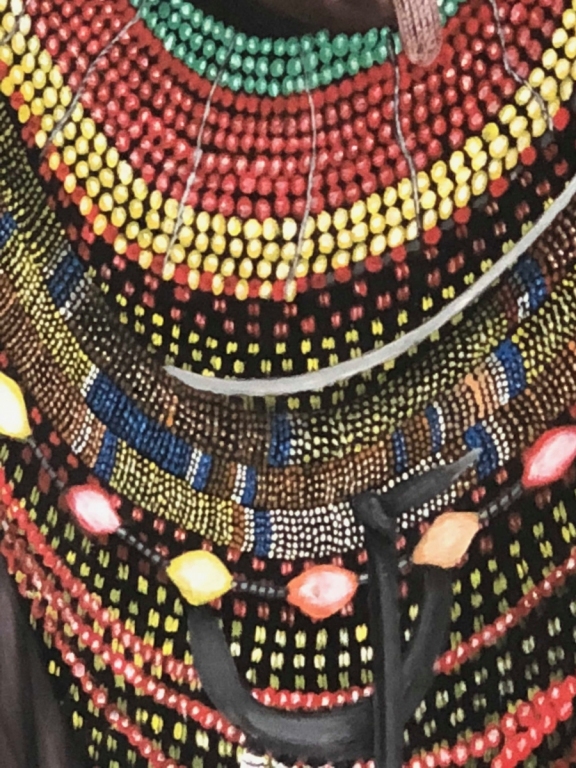
How do you possibly learn a culture in a few days? Without living it, breathing it, experiencing it in every possible way? We’ve learned a lifetime isn’t long enough. To appreciate it, however, takes only a moment. The beauty of the Gospel is that Jesus Christ does not come to destroy or rob people of their rich cultures, but simply to infuse them with the peace, hope, and life that only the Holy Spirit can bring. The Pokots and Turkanans we met testified that this is what these amazing Turkanan church planters are sharing as they bring them the Gospel Message.
